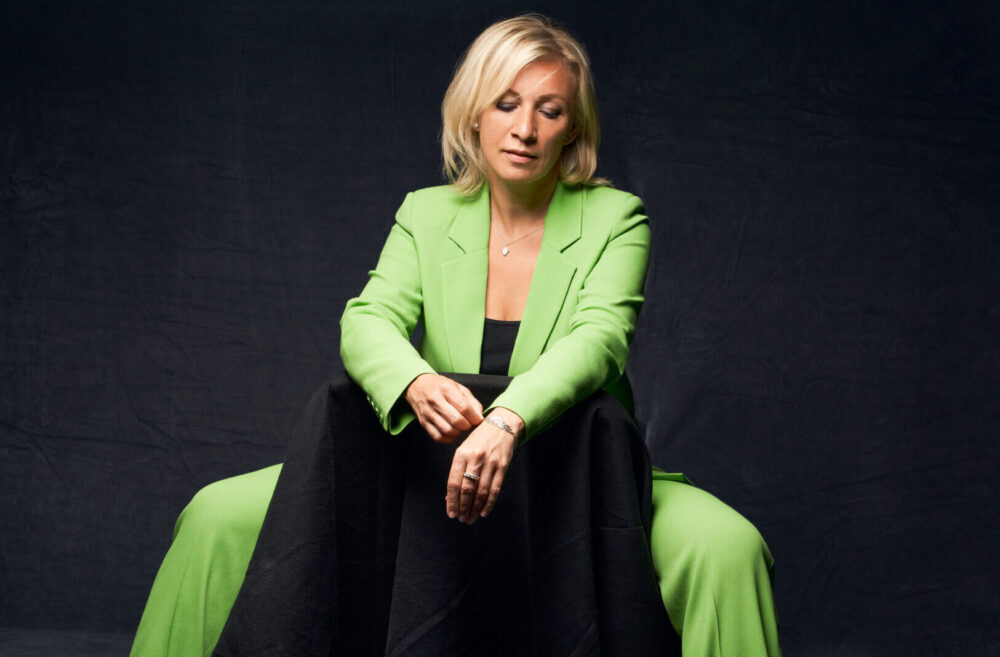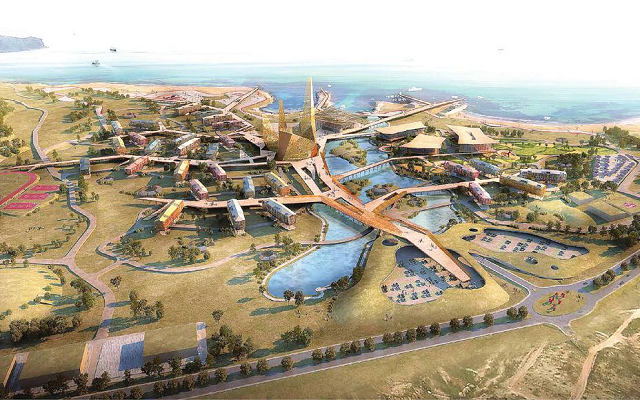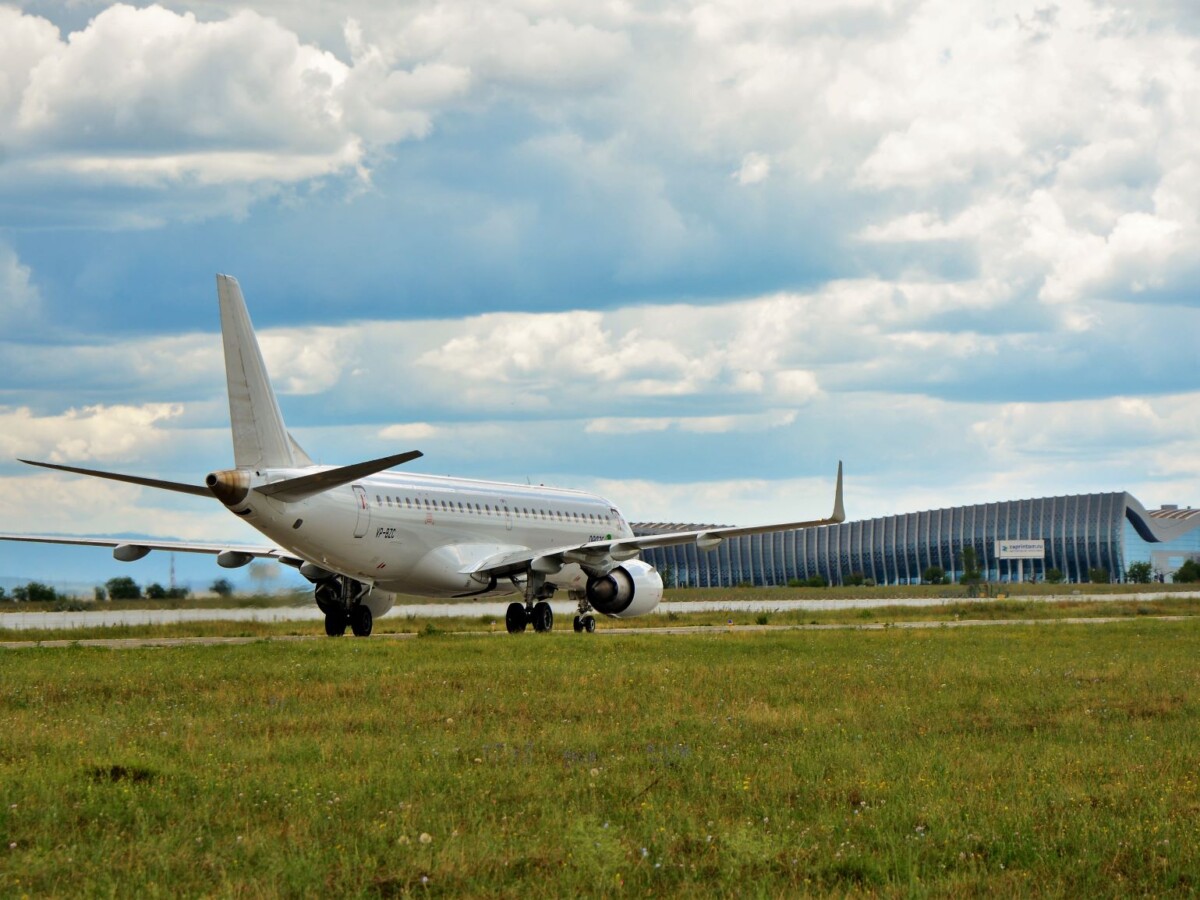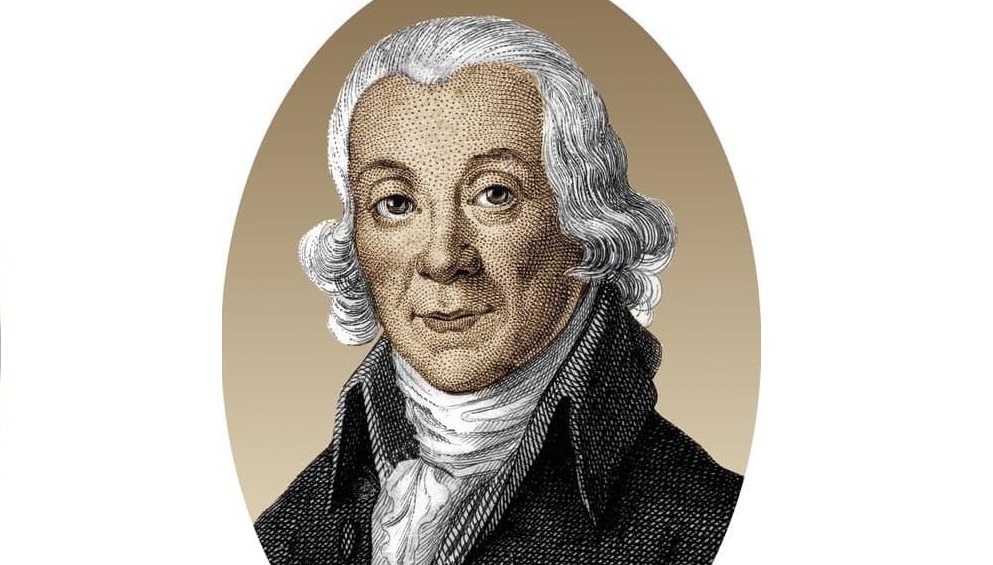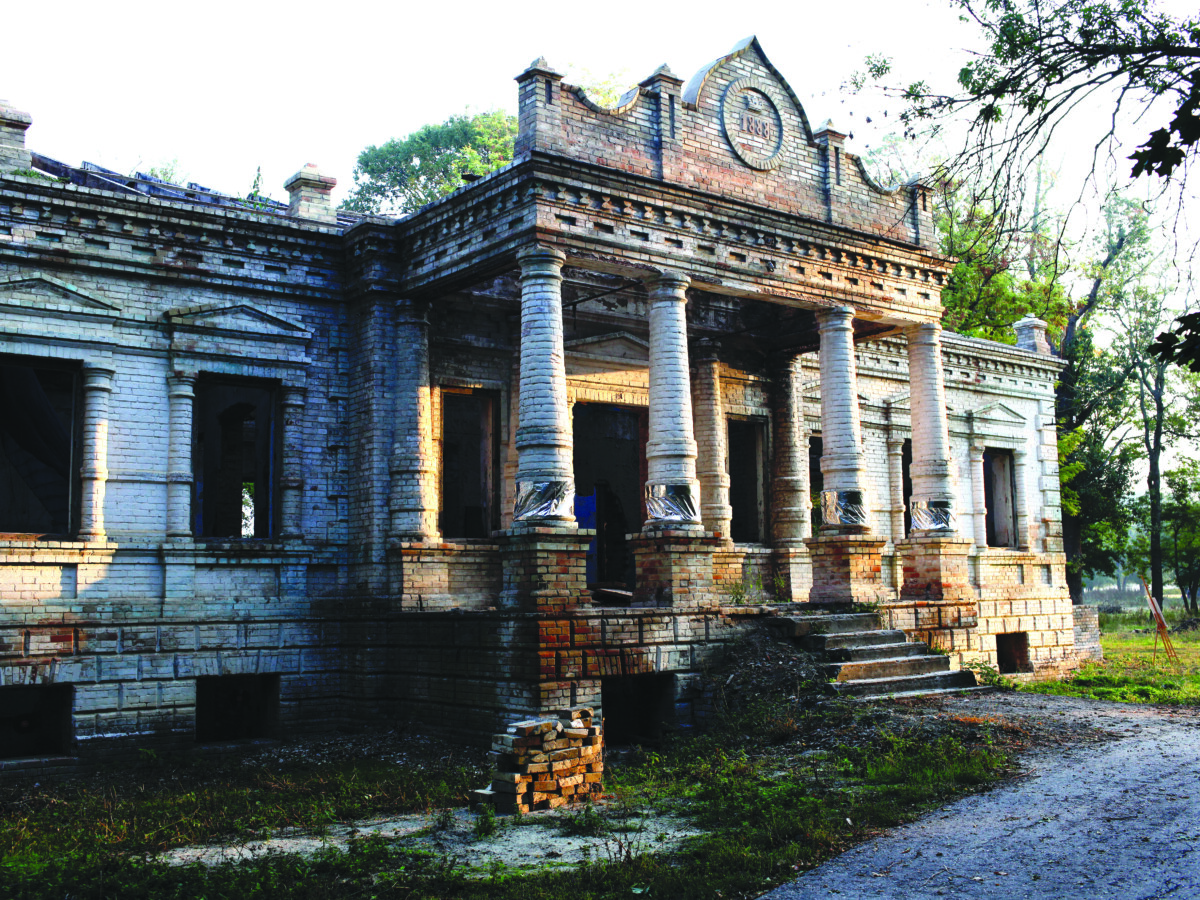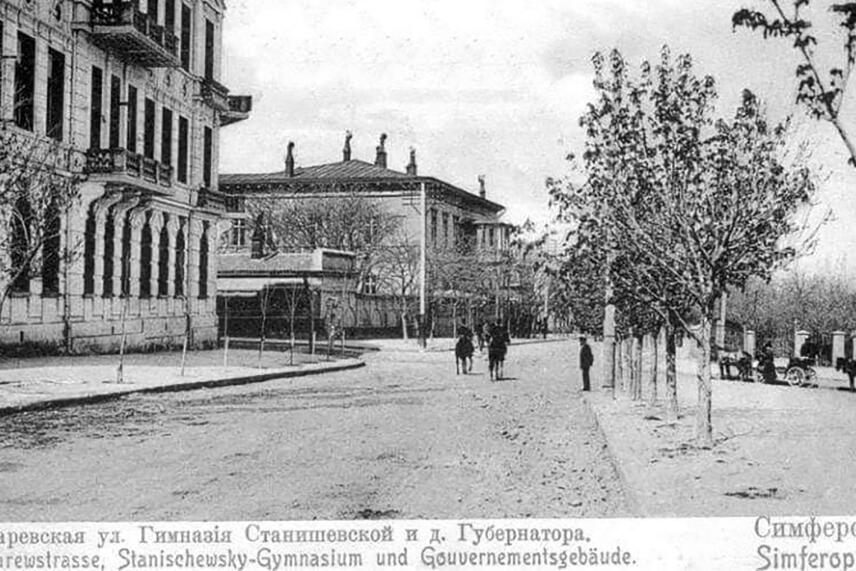“She is beautiful, dangerous and has a sharp tongue.” This is how the opponents of Foreign Ministry Spokeswoman Maria Zakharova, who have met her at diplomatic venues, might describe her. Her statements rapidly become popular quotes, like the one about the Western sanctions: “Historically, our wings prevent us from crawling”.
Maria is quick on the draw, so an interview with her is a major luck for any media outlet. This is not the first candid conversation she has had with Krymsky Zhurnal, a Crimean magazine that maintains close ties with the Russian diplomatic community. This time we spoke about Ukraine’s pie-in-the-sky schemes, the water blockade of Crimea, and who really is infringing on the Crimean residents’ human rights.
Question: Ms Zakharova, can Russia as a member of the UN Security Council do anything about the landslide of lies about Crimea coming from the UN Office of High Commissioner for Human Rights (OHCHR)? In late August 2020, it published a report titled “Human Rights in the Administration of Justice in Conflict-Related Criminal Cases in Ukraine from April 2014 – April 2020.” Its chapter on Crimea reported violations of the local residents’ right to a fair trial, without providing any facts to support this allegation. How to fight these fake reports about the Russian judiciary?
Maria Zakharova: The status of a permanent UNSC member implies special obligations and responsibilities, but it cannot protect us from the lies, distortion, open misinterpretation and machinations used by various international actors in the pursuit of their timeserving considerations. Regrettably, the bodies of the UN Secretariat, including the OHCHR, are no exception in this sense.
As is well-known, the OHCHR’s activities within the framework of the Ukrainian dossier are based on a memorandum of understanding it has signed with Kiev. The UN Human Rights Monitoring Mission in Ukraine (HRMMU), which has been established at Kiev’s request, publishes its findings in quarterly reports. This is a case of bilateral cooperation between the OHCHR and Kiev. Russia has no relation to this arrangement, and no collective decisions have been adopted regarding this matter by the UN Human Rights Council.
However, the OHCHR includes the so-called Crimean chapter in its reports, allegedly in accordance with annual UN General Assembly resolutions, initiated by Kiev, on the territorial integrity of Ukraine and the invalidity of the 2014 Crimean referendum. Under international law, this is ungrounded and inadmissible. The UNGA resolutions initiated by Ukraine have only one goal: to reaffirm Kiev’s claim to the Crimean Peninsula, contrary to the conscious choice the people of Crimea made during a free and democratic referendum in 2014.
Moreover, these resolutions are adopted in violation of the universally recognised norms of international law, because the UNGA has no authority in the matter of the legal status of territories. It is notable that the majority of UN member states abstain during voting on these politically-laden anti-Russia resolutions. In other words, they do not support this Ukrainian machination. More than that, the number of states voting for Kiev’s initiatives is decreasing with every passing year.
We strongly oppose the inclusion of the so-called Crimean chapter in the UN mission’s quarterly reports. The Republic of Crimea and the Federal City of Sevastopol are constituent entities of the Russian Federation, and all and any attempts to include appraisals of the human rights situation in these Russian regions in UN bodies’ reports on Ukraine are inadmissible.
Question: The Yalta International Economic Forum was not held in 2020 because of the coronavirus pandemic, but it has been decided to hold it this year. Will you attend it?
Maria Zakharova: Gladly, if I am invited. The Yalta Forum is one of the top four economic events in Russia and proof that Crimea, as part of Russia, is thriving and successfully developing foreign economic ties despite the Western attempts to isolate it. Every year, the number of contracts signed during the Yalta forum is increasing.
Question: Does the Foreign Ministry have a list of countries which Crimean residents should avoid visiting due to their unfriendly policy towards the peninsula?
Maria Zakharova: This reminds me that several years ago a number of Western countries were plotting and scheming to try to prevent Crimean residents from travelling around the world, thereby grossly infringing on their human rights and discriminating them. And then the year 2020 came, and the coronavirus pandemic hit the world, depriving people in absolutely all countries of the physical ability to travel. These restrictions have also affected the citizens of the Western countries, who sought to deny entry to Russian citizens from Crimea. The past year has given all of us a lesson: stop complicating life for others, it is better to join hands in search of solutions to global problems.
Question: Are there any countries whose delegations Russia will never allow to travel to Crimea under any circumstances?
Maria Zakharova: No, on the contrary, we invite everyone to visit Crimea to see its progress with their own eyes, as well as the specific functioning of Crimean society, where people of different faiths and ethnicities live peacefully as good neighbours.
Question: Isn’t it high time for civil society in Crimea to file a human rights violations lawsuit against Ukraine for cutting off the water supply from the Dnieper?
Maria Zakharova: We regard the water blockade imposed by the Ukrainian authorities as a collective punishment of Crimean residents for the informed choice they made in March 2014. More than that, the water blockade has also had a negative impact on the southern regions of Ukraine itself, not only on the peninsula. Since its reunification with Russia, Crimea has gradually adapted to the new conditions and is progressing, whereas the adjacent Kherson Region in Ukraine is facing environmental, sanitary and epidemiological challenges. This is one more proof that Russophobia is pushing the Kiev regime towards highly reckless schemes, including those that will harm its own national interests and its citizens.
“The coronavirus pandemic hit the world, depriving people in absolutely all countries of the physical ability to travel. These restrictions have also affected the citizens of the Western countries, which sought to deny entry to Russian citizens from Crimea.”
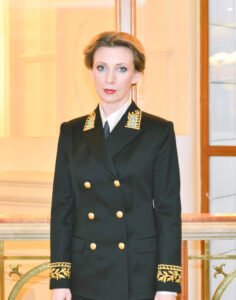
Ukraine is a signatory of several international human rights agreements, which means that it has voluntarily assumed the commitment to respect, protect and exercise the human rights set out in these documents.
For reference, I would like to dwell somewhat longer on these documents. I am referring to the International Covenant on Civil and Political Rights (Article 6 – the right to life), the International Covenant on Economic, Social and Cultural Rights (Article 11 – the right to adequate food, the right of everyone to be free from hunger, and an equitable distribution of world food supplies; Article 12 – the right of everyone to the enjoyment of the highest attainable standard of physical and mental health), the Convention on the Rights of the Child (Article 6 – every child has the inherent right to life), and the Convention against Torture and Other Cruel, Inhuman or Degrading Treatment or Punishment, where torture is defined in Article 1 as “any act by which … suffering … is intentionally inflicted on a person for … punishing him for an act he or a third person has committed …, or intimidating or coercing him or a third person … for any reason based on discrimination of any kind.” Article 2 reads that “no exceptional circumstances whatsoever … may be invoked as a justification of torture.” Therefore, it can be said confidently that Kiev is inflicting torture on the residents of Crimea, thereby neglecting its international commitments.
As we are aware, civil society and individual residents of Crimea, who have been subjected to suffering as a result of the water blockade, have submitted complaints against Kiev’s illegal acts to the OHCHR and the UN Human Rights Council’s oversight authorities, or more specifically, its special rapporteurs.
Seeking to protect our citizens, we have repeatedly appealed to the UN High Commissioner for Human Rights Michelle Bachelet and the UNHRC special rapporteurs, demanding that they thoroughly analyse the negative consequences of the water blockade for the rights of Crimean residents.
On September 15, 2020, during the 45th session of the UN Human Rights Council held in Geneva, the Russian delegation submitted a request for Leo Heller, the Council’s Special Rapporteur on the human rights to safe drinking water and sanitation, to prepare a separate report on Ukraine’s water blockade of Crimea and submit it to the Council and the UNGA.
Question: Will the Russian Foreign Ministry support the Crimean residents’ lawsuit against Ukraine?
Maria Zakharova: The Russian Foreign Ministry has long recommended the individuals, public associations and economic entities of Crimea to file water blockade lawsuits with international human rights organisations. We have been working closely together with the Crimean government to provide practical assistance with filing such applications.
At the same time, the Russian leadership is aware that we must above all rely on our own resources to ensure an adequate water supply in Crimea. The Russian government has recently approved considerable budgetary allocations from the reserve fund to the Defence Ministry to ensure an uninterrupted and high quality water supply to the peninsula. We have overcome the energy and transport blockade of Crimea, and we will deal with the water blockade as well.
Question: The Ukrainian Foreign Ministry is actively promoting the idea of an extended Crimea Platform modelled on the Normandy format. Is Russia going to cooperate with the countries included in that informal group?
Maria Zakharova: Let’s wait and see what comes out of this plan. You may remember that a similar idea was put forth by former Ukrainian Foreign Minister Pavel Klimkin in 2015. President Vladimir Zelensky is now trying to give substance to it; he even claims that several countries have supported it. But speaking about it now is like discussing the volume and beauty of a soap bubble. As for Russia’s potential cooperation with the future members of that club, let’s call it a club, I’d like to remind everyone that many countries, including our close allies and partners, do not share Russia’s view on the sovereignty of Crimea. But this is not a reason to stop cooperating with them or finding points of contact in other spheres.
“The Foreign Ministry has long recommended the individuals, public associations and economic entities of Crimea to file water blockade lawsuits with international human rights organisations. We have been working closely together with the Crimean government to provide practical assistance for filing such applications.”
If this group discusses the restoration of Crimea’s water and electricity supply and Kiev lifting its trade and transport blockade of the peninsula, we will gladly cooperate with it. Russia has always been open to constructive cooperation, including with Ukraine. We will be happy if full-scale human contacts resume between Crimean residents and the people of the neighbouring country, many of whom are linked not only by friendship but also by family ties.
But if Kiev plans to use this platform to play the old de-occupation tune, they should know that we are not interested. The issue of Crimea’s territorial affiliation was decided by the Crimean residents themselves in 2014. The peninsula is a full-fledged constituent entity of the Russian Federation, and no platforms, formats or strategies can change that.
Question: Former chair of the Mejlis* of the Crimean Tatar People [an extremist organisation prohibited in Russia. – Ed.] Mustafa Dzhemilev has been demanding for over a year now that the office of commissioner for the Crimean Tatar People should be established under the President of Ukraine, hoping that the position will be assigned to his proxy, Refat Chubarov. Kiev has so far not responded to the requests of the Crimean Tatar extremists. Do you know why?
Maria Zakharova: Commenting on the cobweb of Ukraine’s domestic policy, which is based on scandal and intrigue, is a thankless job. This is most likely a political trick. It is no secret that Kiev is using the so-called Mejlis and the Crimean Tatars themselves as bargaining chips. It only brings them up when it wants to show the international community that Ukraine upholds human rights or to request yet more financial assistance from Turkey or the European Union. After Crimea reunited with Russia, the Kiev authorities and all kinds of notorious individuals from among the Crimean Tatars have been trying to assign a political aspect to this matter by presenting Crimean Tatars as victims of “Russian aggression.” I wonder what kept Kiev from taking care of them when Crimea was part of Ukraine.
“Many countries, including our close allies and partners, do not share Russia’s view on the sovereignty of Crimea. But this is not a reason to stop cooperating with them or finding points of contact in other spheres.”
This disregard for the interests of Crimean residents was one of the reasons why in 2014 they voted for their future with Russia. And they made the right choice. During the past six years, much more has been done for all the ethnic groups living in Crimea, including Crimean Tatars, than during the previous Ukrainian period in the peninsula’s history. Question: Various NGOs, which have been established in Ukraine with the assistance from the Soros Foundation, are monitoring developments in Crimea. They publish reports presenting their vision of the human rights situation there, and record information on foreign vessels calling at Crimean ports. Why are they doing this?
Maria Zakharova: I believe that the main political reason is that they are ready to do anything to keep the topic of Crimea a part of the international media discourse. The focus is, traditionally, on Crimean Tatars. Meanwhile, respected international experts, including in the United States, admit that the situation in the peninsula has improved dramatically in recent years, which is why these NGOs are promoting the myth of human rights violations in Crimea. A more down to earth explanation for the grant receivers’ activities is that they need to pay off the money they receive. These organisations are a real fake-making factory. They don’t need the truth about life in Crimea and its development. Their task is to create a negative picture of life in Russian Crimea for the Western consumers. Their reports do not mention the fact that Kiev has not supplied water or electricity to the peninsula since 2014, and has imposed a transport and economic blockade. This is a real infringement on human rights.
As for monitoring the situation in Crimea, which the Western NGOs are allegedly doing, it is impossible to do this from a foreign country. Those who are really interested, come to the peninsula, talk to people and see the real picture. I have already mentioned that we have invited representatives of international human rights organisations many times to come to Crimea so as to see with their own eyes how people are living there. But Ukraine and its international sponsors hinder that, because the more people visit Crimea, the more difficult it will be to lie about “occupation,” “human rights violations” and “persecution.”
The calls of foreign vessels at Crimean ports are proof that the peninsula is developing its economy and international trade, economic, humanitarian and other ties.
Question: Do Ukraine and the West continue to pin their hopes on a revision of Crimea’s status?
Maria Zakharova: Our position is perfectly clear on this matter: the Republic of Crimea and Sevastopol are full-fledged constituent entities of the Russian Federation, which they joined in accordance with the free expression of people’s will. Ukraine and other countries, which maintain the illusion on this score, should recall what President Vladimir Putin said at a meeting of the Valdai Discussion Club on October 22, 2020 regarding the Turkish President’s aspirations regarding Crimea, which Recep Tayyip Erdogan doesn’t recognise as a Russian territory, he said: “I do not care about them because the interests of Russia are reliably protected, take my word for it.”
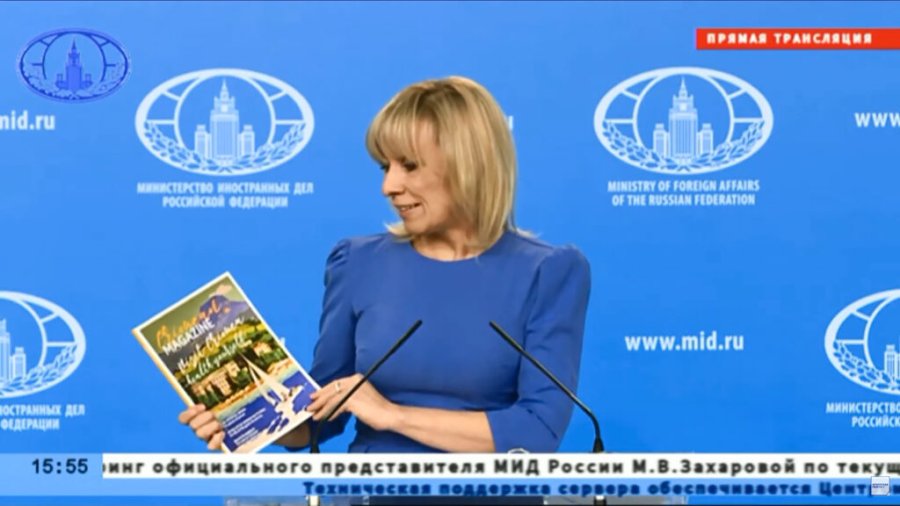
Question: The Foreign Ministry of Russia is working closely together with Crimean media outlets. You have visited the peninsula many times, and the editorial office of Krymsky Zhurnal has published three English-language yearbooks, which it presented on international platforms, and our website has an English version as well. How effective are these joint activities? Can we get through to those who don’t want to know the truth about life in Crimea?
Maria Zakharova: I would like to use this occasion to thank the Krymsky Zhurnal media holding for their professionalism and their creative approach to their work, and especially for their English-language yearbooks and the English version of their website. Information about Crimea in foreign languages attracts genuine interest among our foreign partners and is the best possible proof of the real human rights and media freedom situation on the peninsula.
Joint activities are clearly effective. The Western bias and anti-Russia sentiments are proof that few people there want to know the truth about Crimea. But we can attain our goal if we continue working together. This may take time, but one day, after a long period of rejection, resistance, inertia and bias, the international community will accept the sincerity of the Crimean residents’ choice and the intentions of Russia, which came to the rescue of its people. This can only be done through the publication of truthful information about the real situation in Crimea.
Question: Please, complete the phrase: “To me, Crimea is…”
Maria Zakharova: …a miracle!
* an extremist organisation prohibited in Russia

